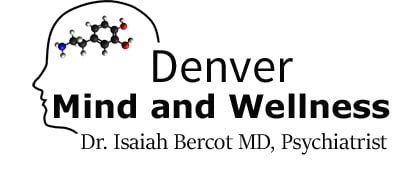Through research, scientists have been able to identify the areas of the brain and the bio-circuits primarily responsible for fear and worry. Each of these circuits is regulated by neurotransmitters, such as norepinephrine and serotonin. The fear response leads to the release of cortisol, a stress hormone, which over time may result in serious health problems, such as coronary artery disease, strokes, hypertension, and type 2 diabetes. Being “scared to death” may have a more literal meaning than we once thought.
Anxiety disorder can take on different forms, such as general anxiety disorder (GAD), social anxiety disorder, and panic disorder. These different forms of anxiety are usually the result of the timing and the severity of the malfunction in the brain circuits. For example, in panic disorder the malfunction is not constant, but occurs intermittently at a high level. On the other hand, in general anxiety disorder (GAD) the neurotransmitter malfunction is constant but not as severe.
My goal as a doctor is not only to match your symptoms to the underlying brain regions involved, but also to determine which neurotransmitters are malfunctioning within those regions. In this way, I can prescribe medication that is targeted to your unique symptoms.



